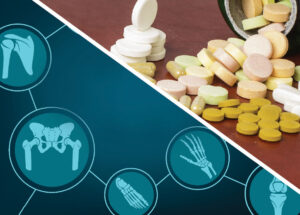Despite the continuous doubt associated with the inclusion of illegal ingredients in sports supplements, the category continues to thrive as extra steps are taken to ensure safety.
Although the sports supplement industry has been attacked in recent years for its alleged ineffective regulatory support, the United States is still without question the largest consumer market for sports nutrition products. And now That the demand for sports nutrition products is coming from mainstream consumers in addition to athletes in training, the market will only grow.
According to Nutrition Business Journal (NBJ), sales of sports nutrition supplements reached $2.7 billion in 2008, showing a six percent expansion over the previous year. Lisa Lent, CEO and founder of Vitalah (Watsonville, CA), agreed that the category is continuing to enjoy very nice growth. “The face of this category has changed enormously over the years,” she said.
“Sports supplements are not limited to muscle builders and pro sports figures.
This category, which includes fitness, weight loss and sports performance, has progressed into being a ‘lifestyle choice,’ meaning that Americans are choosing to engage in an active lifestyle and are purchasing products that support their success, their health and their goals.”
And from Lent’s perspective, the recession hasn’t hit this category hard.
“Baby Boomers want to live longer and have a better quality of life as they age than their parents’ generation, so they are seeking dietary supplements and nutritional options that help accomplish these goals,” she said. “The recession has impacted this category some, but surprisingly, supplements sales are staying strong because a few dollars spent on purchasing nutritious food or helpful supplements beats a trip to the doctor’s office.”
A Widespread Market
In the early years of sports nutrition, the primary consumers were bodybuilders and ultra athletes. Today, the industry has diversified to include more lifestyle sports and a broader array of age groups. According to Gabe Herrick, sales manager of supplements and sports nutrition for Bioenergy Life Science, Inc. (Minneapolis, MN), sports nutrition now focuses on two main categories: endurance and recovery.
Athletes are looking for products that will improve their performance during exercise and products that will help them recover quickly for future workouts, Herrick said.
Further, Jenelle Kim, co-founder of Jadience Herbal Formulas (San Diego, CA), offered that the market for sports nutrition supplements boomed in the 1990s with weight lifters and other high-performance athletes looking to gain an edge in their specific sport.“There are no signs of this changing anytime soon,” said Kim. “However, the newest segment of sports nutrition consumers are more casual athletes who are already taking supplements for health. Typical reasons include energy, health and recovery. While exercise is shown to have overwhelmingly positive effects on the body, it can also come with side-effects, such as wear and tear on the muscles and joints, which can hinder performance significantly.
Consumers of sport supplements no longer fit only into high-performance athlete category, but within the ranks of more casual athletes who understand the importance of supplemental nutri nutrients for preserving health.”
Robb Dorf, founder and CEO of PureFit (Irvine, CA), pointed to more evidence that shows there are a group of consumers emerging as the main driver for the market, made up of people who are not necessarily interested in sports. Market research firm Datamonitor labels this group “lifestyle users,” who are not necessarily very athletic, but are choosing to consume sports nutritional products as an initial building block for better health. People within this group mainly consume sports nutrition products in order to provide a refreshing beverage, a quick meal replacement or simply a healthy snack.Consumers within the group may also use sports nutrition products to provide an energy boost during illness, or even when feeling tired.
Playing it Safe
There are a wide variety of sports nutrition supplements that consumers can choose from, but recently, with the seemingly constant controversy surrounding athletes and performanceenhancing drugs, manufacturers of sports supplements have a more careful eye on what athletes should put in their bodies.
Jadience’s Kim said recent safety issues are directly correlated with the huge paradigm shift in the American consumer’s general consciousness of health. “There is a reason why natural foods retailers are eating into the traditional grocer’s market share. People are looking for natural alternatives without Harmful additives. Athletes are now looking for supplements from reputable natural foods and vitamin stores. There has been a lot of negative press on synthetic supplements regarding ingredients that have produced unanticipated health-related side effects, which has hurt the sports nutrition industry. Unless the effects of some of these ingredients are fully known, athletes today are more skeptical than they have ever been.”
Two particularly popular supplements among athletes and fitness professionals from Nordic Naturals (Watsonville, CA) are its Ultimate Omega® and Ultimate Omega® SPORT, which is NSF certified to be free of banned substances.Ultimate Omega SPORT is therefore the choice of many professional sports teams, high schools and colleges, said Corinna Bellizzi, national Sales manager of the retail market for the company. Offered in 1,000mg soft gels, these products supply doublestrength EPA+DHA in a pleasantly flavored (and chewable) lemon soft gel.
Top Secret Nutrition’s (Sunrise, FL)N. O.370™ pre-workout Nitric Oxide product is also unique, according to the company’s CEO, Tom Richardson. “It has an ingredient (Astragin) that has been clinically studied to improve the absorption of L-arginine by 62 percent at the cellular level,” he said. “This means more nitric oxide, [and] more nitric oxide means more blood to the muscle, which means, greater pumps, faster recovery and faster gains. Currently no other pre-workout product contains this ingredient.
“Additionally, it contains another unique ingredient called Actigin,” Richardson added, “which increases ATP (adenosine triphosphate) and muscle glycogen restoration post-exercise. Currently, no other pre-workout product contains Actigin either.”
Then there are times when athletes train so hard that they actively deplete the amount of energy stored in their muscle cells to the point where it cannot be restored efficiently before their next workout. This is why D-Ribose, made by Bioenergy Life Sciences, is often used immediately before and after workouts to prevent exercise-induced muscle cramping and soreness.
Ribose is a five-carbon sugar; however, unlike other sugars, ribose is a structural sugar not burned for fuel, but is absorbed into cells for ATP production, said Bioenergy’s Herrick. “By increasing available ATP, ribose increases energy naturally.When oxygen is compromised, either due to exercise, certain diseases or natural aging, nothing increases ATP levels like ribose. Ribose works synergistically with many other compounds to improve energy, but only ribose elevates the levels of ATP in the cell. In addition, Bioenergy Ribose is GRAS affirmed by the FDA, is all natural and patent protected.”
The Powder Phenomenon
While there are several delivery methods that provide ways to keep up with the expanding sports nutrition customer base, powders have rushed up to the top of the list. Bodybuilders have favored the powdered form of protein, which contains the essential building blocks for muscle. The powder is mixed with water, milk or juice and often flavoring, resulting in a popular shake form.
Retailer Chuck Ringel, owner of Greenwich Healthmart in Greenwich, CT, said his store’s most popular products are indeed protein powders, which consumers prefer to tablets or capsules due to the large number of pills they must ingest for the equivalent serving size in powder.
Vitalah’s Lent is also on board with the surge of powder products. “The powder form improves the bioavailability of vitamins and minerals because powder form supplements are produced with less processing of the ingredients (including avoiding excessive heat and binder ingredients such as cellulose),” she said. “Also, less time elapses between blending and processing, which reduces the exposure of the ingredients to air, and the powder form is better absorbed by the body because it does not need to be broken down by the stomach acids to be absorbed in the small intestine—an advantage especially important for people with digestive difficulties.” Lent added that, according to the Physicians’ Desk Reference (2000), our bodies can only absorb approximately 10-20 percent of vitamins and minerals in pill form. “Add to that ease, convenience and great taste, and you have a winner.”
Additionally, Pro Sports Club (Bellevue, WA) carries many products that support metabolic health and weight management, and the company has noticed a recent popularity rush in meal replacement shakes. “As part of the 20/20 LifeStyles program, we carry a dry powder meal replacement shake (vanilla and chocolate flavored) as well as ready-to-drink shakes (vanilla and chocolate flavored, with strawberry on its way),” said Chelsey Bobeck, MS, RD, CD, 20/20 Lifestyles director. “Our shake pre-exercise has just the right macronutrient combination to set our members right for a strong workout.”
Clearing Hurdles
Most serious athletes will say that the competitive drive to win can be fierce.
Besides the satisfaction of personal accomplishment, athletes often pursue dreams of winning a medal for their country or securing a spot on a professional Team. In such an environment, the use of performance-enhancing drugs has become increasingly common.However, this usage has cast a significant cloud over the sports nutrition industry.
One unfortunate development over the past few decades is the use of banned substances in sports worldwide, said Nordic Naturals’ Bellizzi. “Due to the press around doping in cycling and Steroid use in baseball, many people become confused or concerned about the sports supplements they had come to trust. This is an unfortunate and challenging obstacle to overcome for sports nutrition manufacturers. It is important for athletes to be able to trust that their nutritional supplements do not contain banned substances or their metabolites.”
With the negative stigmas that are associated with sports nutritional supplements and enhancement drugs, Lent noted that retailers must ask companies to be transparent about ingredient Sourcing and purity issues (environmental toxins). “This is a very important thing that retailers can do—stock products from companies that are responsible and willing to show accountability and products in cGMP facilities.Third-party test results should be available to retailers and consumers alike from companies when approached on this issue. Those that have nothing to hide, hide nothing.”
There is no doubt that retailers can do their fair share to contribute to consumer awareness about the safety of their store’s products. Retailer Bobcek said her store includes three dietitians well versed in sports nutrition on staff.“We will refer any sports nutrition questions that come up among our members to these three individuals,” said Bobcek. Additionally, Greenwich Healthmart’s Ringel said his store also keeps a “resident guru” on staff, helping customers solve any problems or answer any questions they might have with sports nutrition supplements.
Doing this will go a long way in providing solutions to the challenges in the safety and efficacy issues that arise in supplements for athletes.
Lent agreed that much of the onus is on the stores. “Stores that issue a list of ingredients that they refuse to carry or clearly state their position on energy products do a great service for their shoppers,” she said. “A store should allow its employees to be trained on their sports nutrition products: What are the top things to look for? Science, third-party testing, quality ingredients, a company that you can trust, information available in printed literature and on the website, truthful claims and samples for the employees to take home and try.”
Despite the many challenges the sports nutrition industry might currently face, overall, it is still a growing market that many consumers would have trouble living without. “We believe [the market] is excellent,” said PureFit’s Dorf.
“More people are trying to get healthy.Supplementing with healthy snacks is a vital part of helping consumers reach their fitness goals. As for potential, it is extremely wide open and growing— almost limitless.”
Cross Sport Power, Endurance and Recovery
Athletes are under a great deal of stress from the physiological demands of strenuous exercise.They need specific supplements for particular issues, and thus must be careful about what they put in their bodies.
Carl Germano, RD, CNS, CDN and product development consultant for Bluebonnett Nutrition Corp. (Sugar Land, TX), suggested that particular attention to the multiple nutritional needs of the athlete be directed to oxidative stress, inflammation, muscle breakdown, fatigue and immune suppression.He recommended the following for the different athletes’ needs:
• For the power/strength athlete, specific dietary manipulation should be considered to make certain they obtain recommended Quantities of highquality protein, carbohydrate and essential fats.For many athletes, this can be a challenge.
Therefore, highquality protein supplements from whey and casein are recommended.
In addition to protein, building and maintaining lean muscle is benefited by regular consumption of L-glutamine, branched chain amino acids, L-arginine, creatine, citrulline, ornithine alphaketoglutarate and nucleotides.
• For the endurance athlete, again, specific dietary manipulation is required with particular attention to high-quality protein and especially carbohydrates, which are needed for adequate energy stores in muscle.
Therefore, high-quality whey and casein supplementation can be implemented as well as the use of waxy maize as a better supplemental form Of carbohydrate. In addition to these macronutrients, maintaining high endurance capacity is benefited by ribose, Lcarnitine, GliSODin® SOD, nucleotides, Lalanyl- L-glutamine, beta alanine, coenzyme Q10 and quercitin.
• For recovery, the above supplements play dual roles in helping the body adapt to the stress of the activity. A full complement of antioxidants— especially lipoic acid—needs to be considered.Also, transient immune suppression occurs after strenuous activity that is grossly ignored. The use of whey (high in immune-peptides), beta 1,3/1,6 glucans, nucleotides, vitamin D, glutamine and probiotics all have critical roles in maintaining a healthy immune system.
Lastly, add in a few well-known anti-inflammatory agents such as boswellia, omega-3 and turmeric to quell the elevated inflammatory response after exercise.



![[Sponsored Video] Special Report: Bergamonte®, the Untold Story](https://vitaminretailer.com/wp-content/uploads/2023/06/sponsored-video-special-report-b-300x169-1707947265.jpg)








